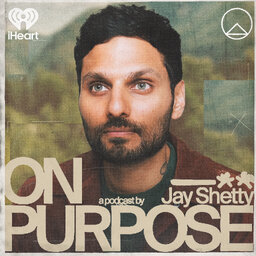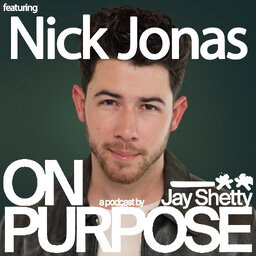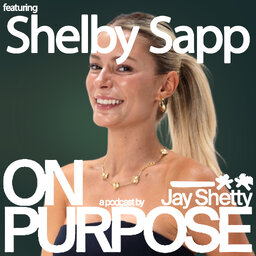#1 Way to Find Confidence Within When You Have Low Self- Esteem with Victoria Jackson
Today, let's welcome to the On Purpose podcast cosmetics entrepreneur, medical research trailblazer, and Women’s Hall of Fame inductee, Victoria Jackson. Victoria founded the global powerhouse brand Victoria Jackson Cosmetics where she irrevocably altered the beauty landscape with her creation of the “No Makeup” makeup aesthetic. She and her husband, Bill Guthy—founder of the marketing behemoth Guthy-Renker—established The Guthy-Jackson Charitable Foundation to fund research on NMO treatments and a potential cure.
Victoria shares her lifelong experiences, from the anxiety of feeling different to the profound questions about our existence and the roles we play in this world. She opens up about the darkest day in her life as well as the trials of transforming passion into a successful enterprise. These stories aren't just about overcoming; they're about thriving, giving hope to those striving to make a meaningful impact in their lives and the lives of others, especially when facing seemingly insurmountable obstacles.
In this interview, you’ll learn:
How to stay resilient in the most difficult circumstances
How to move on from trauma
How to turn passion into a career
How determination can change lives
Why we never stop learning
The episode is a beacon for anyone seeking to make sense of life's complexities, offering insights into building relationships, handling adversity, and finding one's calling.
With Love and Gratitude,
Jay Shetty
What We Discuss:
00:00 Intro
04:38 I Always Felt That I’m Different
05:51 We’re All Trying to Figure Out the World
06:38 What Were You Most Anxious Of?
08:55 What is My Purpose?
11:29 Love for Teaching and Sharing Knowledge
13:58 Trust the Process and Have Patience for Yourself
17:13 “The Night I Nearly Lost My Life”
23:13 How Do You Overcome Trauma
25:04 “I Wanted to Give Women Hope”
27:42 Transforming Passion to a Successful Business
32:32 Navigating Relationship Can Be Challenging
35:56 “My Daughter Had Four Years to Live”
39:54 Prove It To Them That You Can Do It
42:39 The Biggest Roadblocks in Healthcare
47:37 How Do You Survive Difficult Situations?
49:48 Finding Cure For Alli
53:21 Going Against All Odds
55:00 Finding Answers and Taking Actions
57:48 Victoria on Final Five
01:03:11 It’s Hard to Get People to Pay Attention
01:06:43 Download the NMO Resources App
01:09:13 Strategic Allocation of Funds
01:10:32 You Just Have to Find a Way
Episode Resources:
Victoria Jackson | Website
Victoria Jackson | Instagram
Saving Each Other: A Mother-Daughter Love Story
The Power of Rare: A Blueprint for a Medical Revolution
Victoria's latest book, "We All Worry, Now What?" is now available for pre-order on Amazonhttps://www.amazon.com/All-Worry_Now-What-Victoria-Jackson/dp/1595911324
In 1 playlist(s)
On Purpose with Jay Shetty
My name is Jay Shetty, and my purpose is to make wisdom go viral. I’m fortunate to have fascinating …Social links
Follow podcast
Recent clips

The REAL Reason You Feel Behind (It’s Not What You Think!) Use THIS Simple Reset to Make Confident Decisions
21:57

NICK JONAS: The REAL Story Behind a Lifetime of Fame, His Inner Critic, and How Fatherhood Changed Everything
1:11:23

Sales Expert Shelby Sapp: The Simple Sales Framework You Can Use in Work, Money, and Relationships (Follow THIS Method to FINALLY Get The Life You Deserve)
1:41:31
 On Purpose with Jay Shetty
On Purpose with Jay Shetty